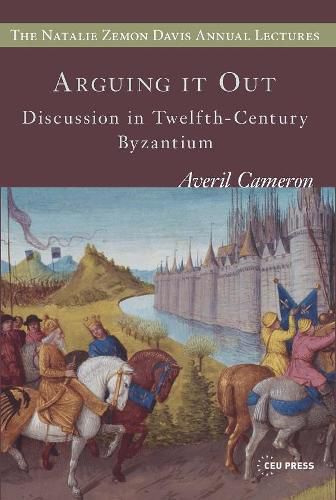Readings Newsletter
Become a Readings Member to make your shopping experience even easier.
Sign in or sign up for free!
You’re not far away from qualifying for FREE standard shipping within Australia
You’ve qualified for FREE standard shipping within Australia
The cart is loading…






This title is printed to order. This book may have been self-published. If so, we cannot guarantee the quality of the content. In the main most books will have gone through the editing process however some may not. We therefore suggest that you be aware of this before ordering this book. If in doubt check either the author or publisher’s details as we are unable to accept any returns unless they are faulty. Please contact us if you have any questions.
In this book the author contends-and this is not a very widely held view-that Byzantium deserves to be considered an influential part of the broader development of Europe, even though its borders also reached out to the vast territories of Anatolia and the Caucasus, and to the eastern Mediterranean. The long twelfth century, from the seizure of the throne by Alexius I Comnenus in 1081, to the sack of Constantinople by the Fourth Crusade in 1204, is a period recognized as fostering the most brilliant cultural development in Byzantine history, especially its literary production. It was a time of intense creativity as well as of rising tensions, and one for which literary approaches are a lively area in current scholarship. The study focuses on the prose dialogues in Greek from this period-of very varying kinds-and on what they can tell us about the society and culture of the era when western Europe was itself developing a new culture of schools, universities, and scholars. Yet it was also the period in which Byzantium felt the fateful impact of the Crusades, which ended with the momentous sack of Constantinople in 1204. Despite revisionist attempts to play down the extent of this disaster, it was a blow from which, arguably, the Byzantines never fully recovered.
$9.00 standard shipping within Australia
FREE standard shipping within Australia for orders over $100.00
Express & International shipping calculated at checkout
This title is printed to order. This book may have been self-published. If so, we cannot guarantee the quality of the content. In the main most books will have gone through the editing process however some may not. We therefore suggest that you be aware of this before ordering this book. If in doubt check either the author or publisher’s details as we are unable to accept any returns unless they are faulty. Please contact us if you have any questions.
In this book the author contends-and this is not a very widely held view-that Byzantium deserves to be considered an influential part of the broader development of Europe, even though its borders also reached out to the vast territories of Anatolia and the Caucasus, and to the eastern Mediterranean. The long twelfth century, from the seizure of the throne by Alexius I Comnenus in 1081, to the sack of Constantinople by the Fourth Crusade in 1204, is a period recognized as fostering the most brilliant cultural development in Byzantine history, especially its literary production. It was a time of intense creativity as well as of rising tensions, and one for which literary approaches are a lively area in current scholarship. The study focuses on the prose dialogues in Greek from this period-of very varying kinds-and on what they can tell us about the society and culture of the era when western Europe was itself developing a new culture of schools, universities, and scholars. Yet it was also the period in which Byzantium felt the fateful impact of the Crusades, which ended with the momentous sack of Constantinople in 1204. Despite revisionist attempts to play down the extent of this disaster, it was a blow from which, arguably, the Byzantines never fully recovered.